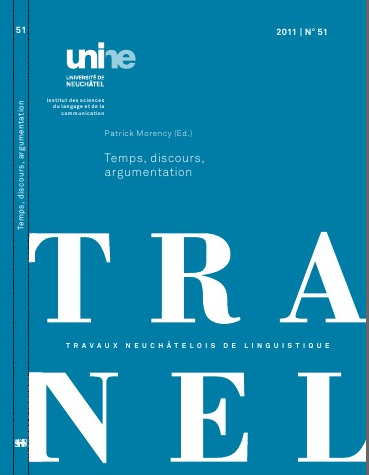Le conditionnel dit épistémique signale-t-il un emprunt ?
DOI :
https://doi.org/10.26034/tranel.2011.2772Résumé
This article examines the epistemic use of the conditional in French. After surveying the current research into the different traditions in which such a conditional has been analysed (evidentiality, polyphony and modality), it proposes an analysis according to which the epistemic use of the conditional is a subtype of the hypothetical one. This assumption is based on diachronic data, which show that the epistemic conditional can be interpreted as coming from an allusion to a hypothetical point of view. The shift toward the epistemic value is realized by the ambiguous interpretation between the report of a point of view [si l'on suit le point de vue de X] (according to X's point of view) and the report of a saying [si ce que dit X est juste] (if X says the truth). The epistemic value of the conditional comes from a loosening of the semantic link between the latter protasis and the main conditional clause.Téléchargements
Publié-e
01-01-2011
Comment citer
Rossari, C. (2011). Le conditionnel dit épistémique signale-t-il un emprunt ?. Travaux neuchâtelois De Linguistique, (51), 75–96. https://doi.org/10.26034/tranel.2011.2772
Numéro
Rubrique
Article thématique


